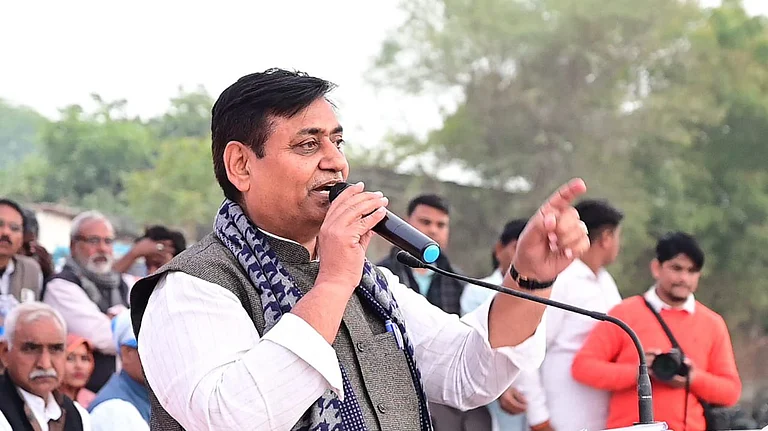
Summary of this article
Gujarat’s Jan Vishwas Bill to replace imprisonment for minor offences with fines.
Bill targets offences including unauthorised construction, public space encroachment, and tax defaults.
Monsoon session (8–10 September) to table amendments across 11 state acts for easier governance and business.
The Gujarat government will introduce a bill aimed at decriminalising certain offences to promote trust-based governance and improve ease of doing business, state Parliamentary and Legislative Affairs Minister Rushikesh Patel said on Wednesday during the inauguration of the state government’s 'Dial 112 Emergency Response Support System (ERSS)', ‘Jan Rakshak’ vehicles, and residential and non-residential housing units of the Police Housing Corporation in Ahmedabad.
Speaking in Gandhinagar, Patel said the move is also intended to simplify rules and regulations and reduce the burden on courts. “Our aim is to simplify rules and regulations, promote ease of doing business, reduce burden on courts and rationalise the existing provisions,” PTI reported.
The bill, named The Gujarat Jan Vishwas (Amendment of Provisions) Bill, will be tabled during the upcoming monsoon session of the state legislative assembly from 8 to 10 September. It proposes amendments to provisions in 11 existing acts, reported PTI.
According to the bill document uploaded on the assembly’s official website, the legislation seeks “to amend certain enactments for decriminalising and rationalising offences to further enhance trust-based governance for ease of living and the ease of doing business”.
According to PTI, under the proposed bill, minor offences such as unauthorised construction, encroachment on public spaces, non-removal of filth, tying cattle in public areas, and defaulting on certain taxes would attract fines and penalties instead of punitive legal action.
The amendments will affect acts including the Gujarat Co-operative Societies Act, 1961; the Gujarat Agricultural Produce and Marketing (Promotion and Facilitation) Act, 1963; the Gujarat Town Planning and Urban Development Act, 1976; the Gujarat Municipalities Act, 1963; and the Gujarat Provincial Municipal Corporations Act, 1949.
The Statement of Objects and Reasons of the Bill notes that a complex set of outdated rules contributes to a trust deficit. “It is therefore necessary to redefine the regulatory landscape of the laws under the Ease of Living and Ease of Doing Business reforms,” it said. Reducing compliance requirements is expected to support business process improvements and enhance the ease of living for citizens.
The bill also emphasises that the fear of imprisonment for minor offences has hindered business development and individual confidence. “The government is therefore considering decriminalisation of a number of minor offences by replacing them with monetary penalties. By taking such measures, the government is striving hard to make lives and businesses easier and reduce the burden on courts,” the document added.
(With inputs from PTI)






.jpg?auto=format%2Ccompress&fit=max&format=webp&w=768&dpr=1.0)
















